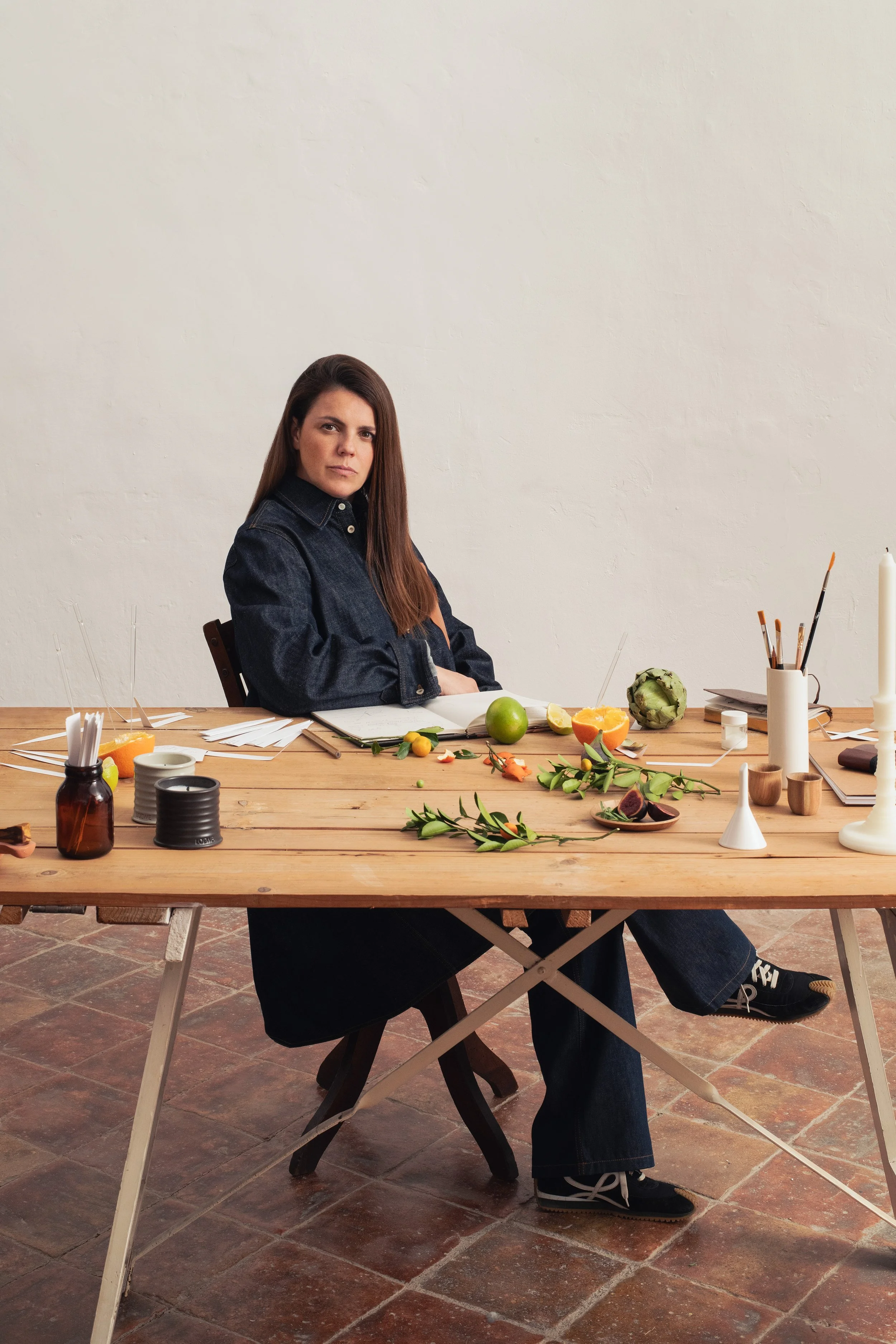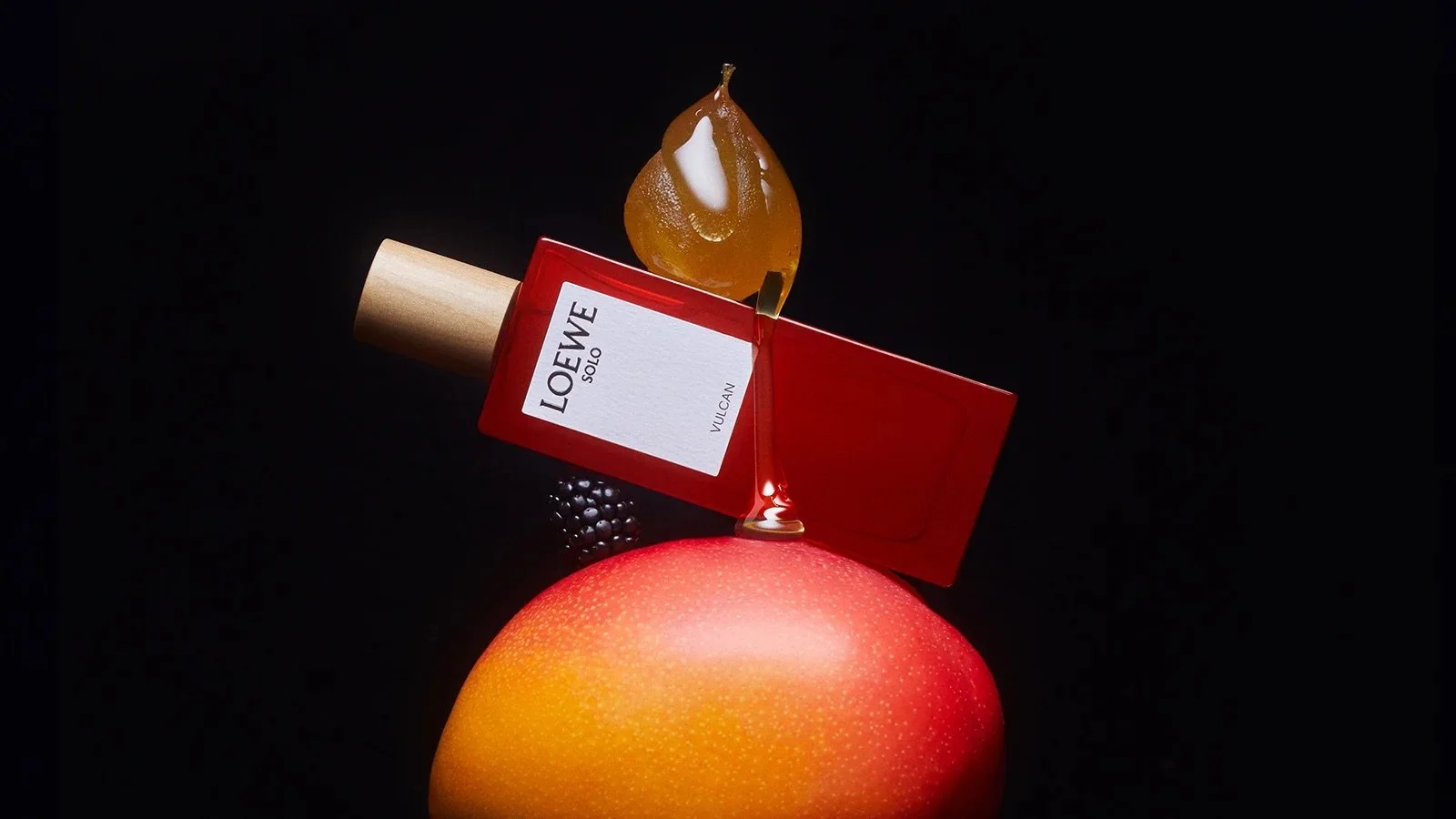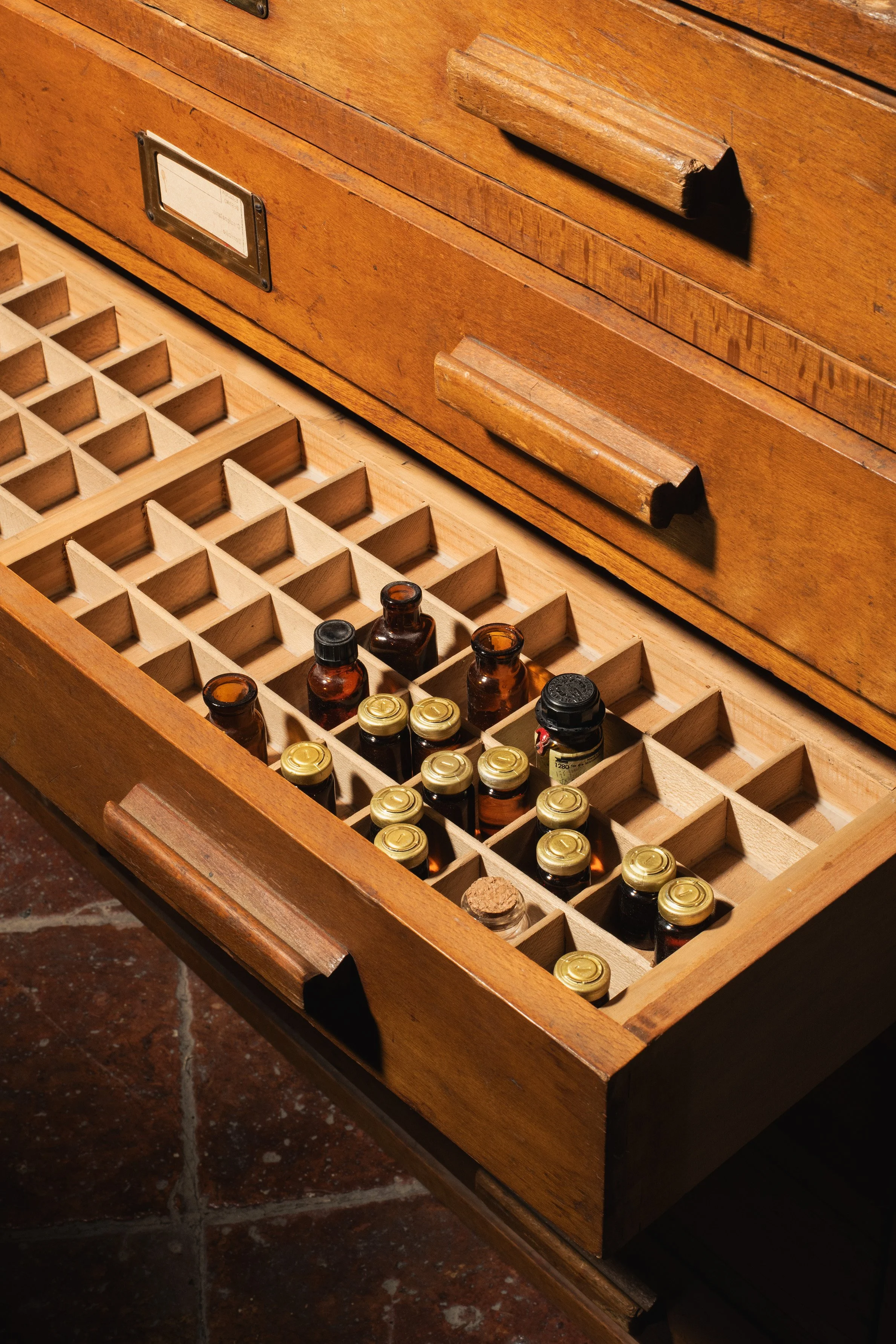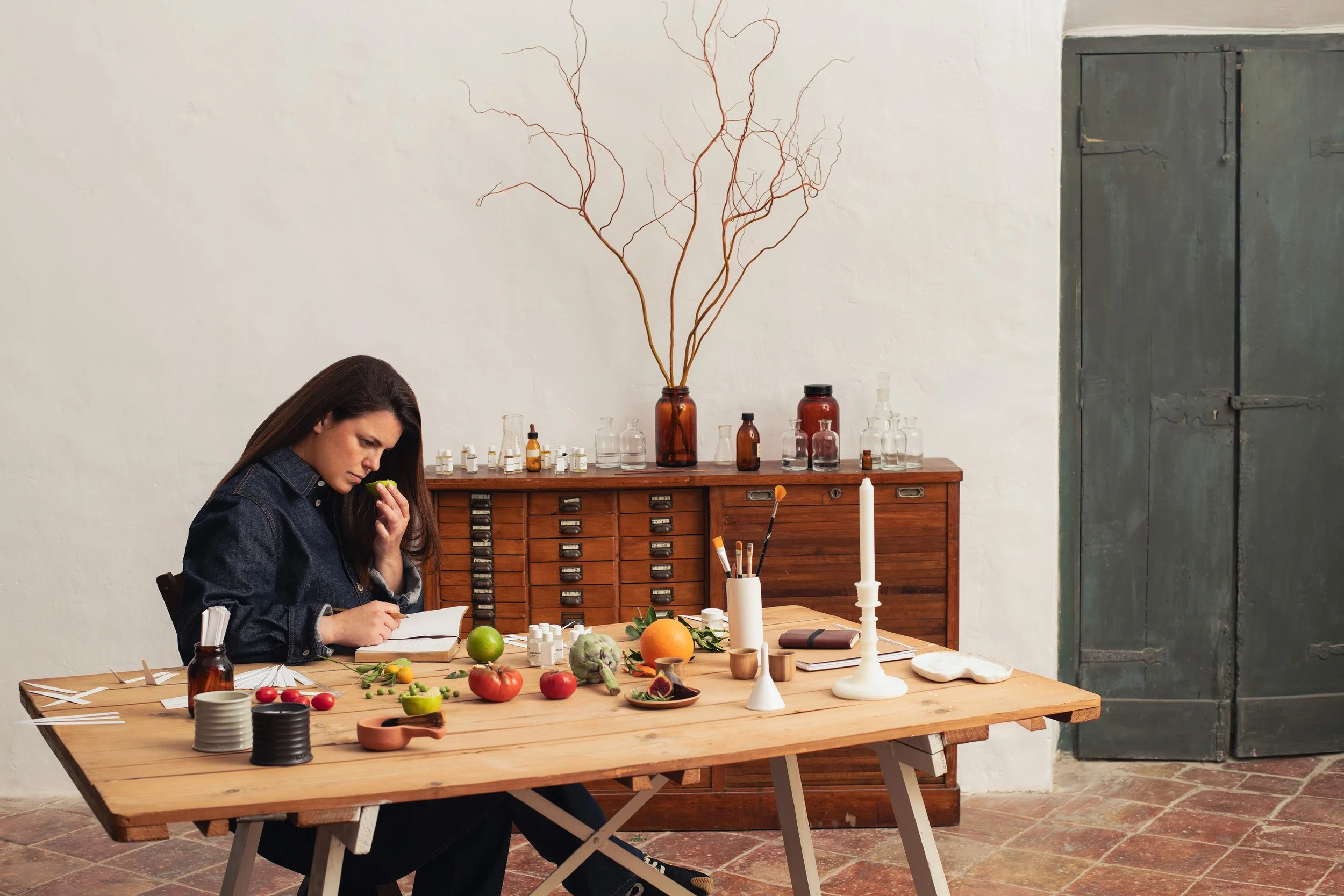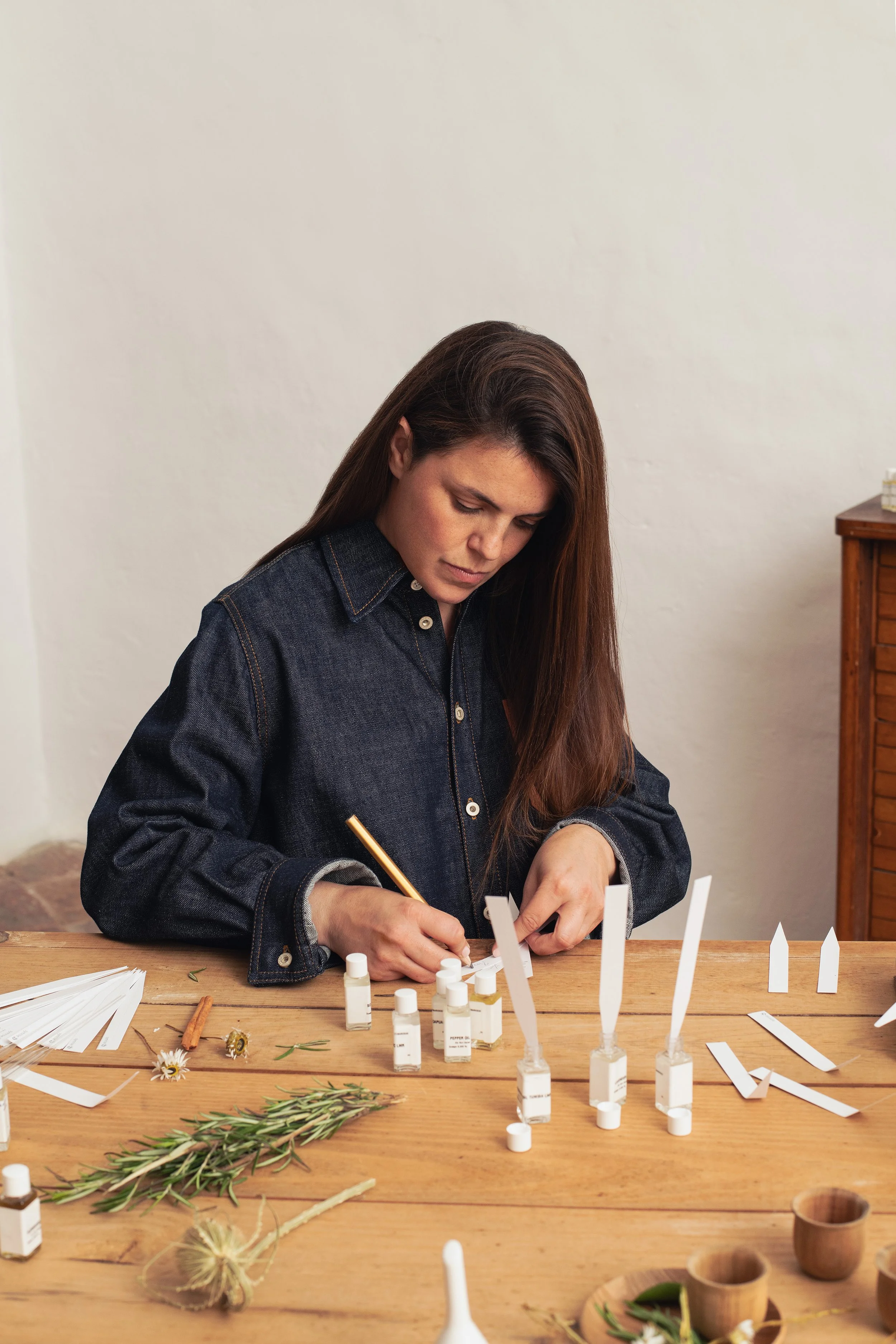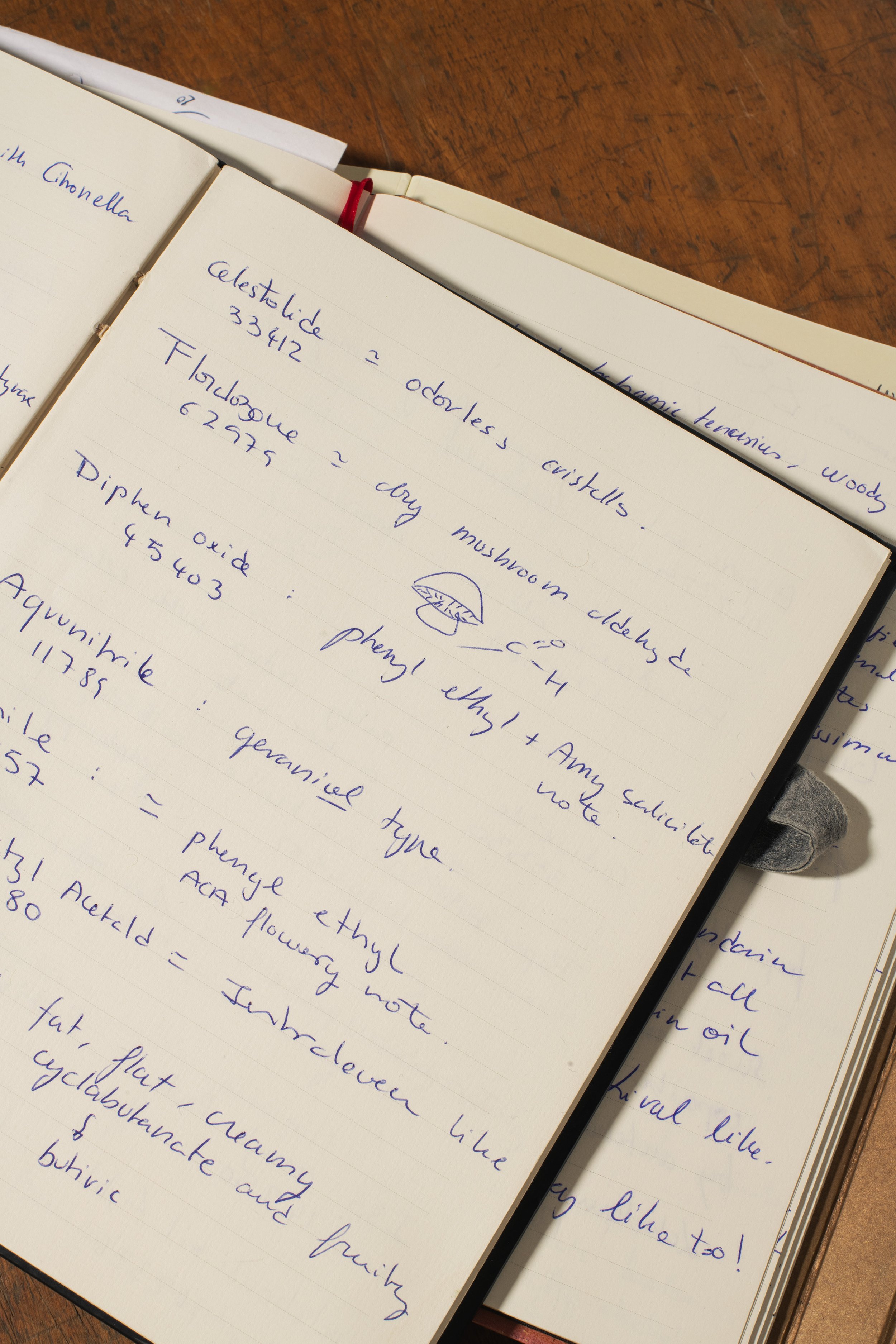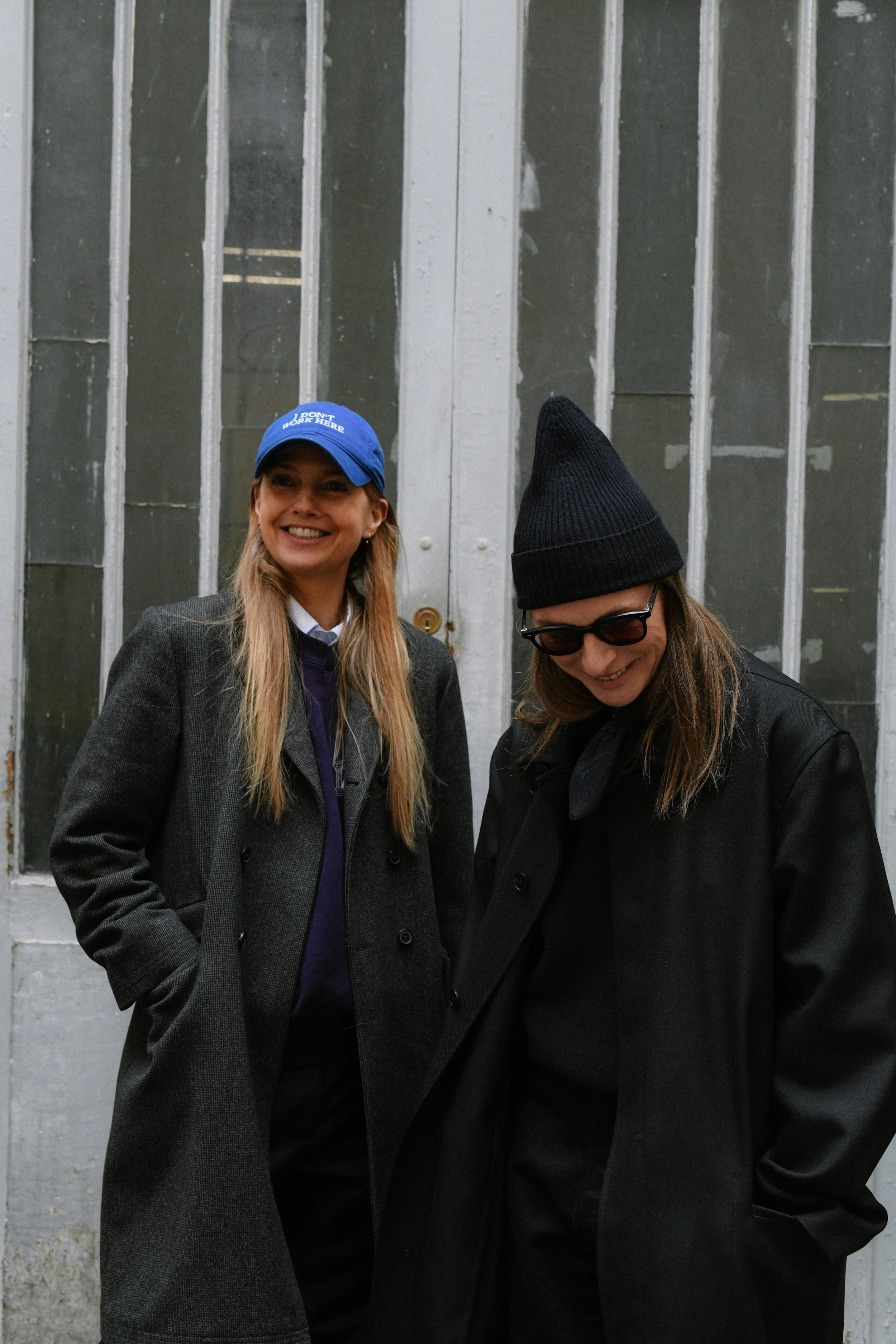The Nose of LOEWE
Courtesy of LOEWE.
Nuria Cruelles
The Nose of LOEWE
By Bonnie Langedijk
Nuria Cruelles has always had a nose for scents. The Spanish perfumer was obsessed with the smells of the world from an early age, but also discovered a unique, natural-born instinct known as synaesthesia – the art of visualizing scents as colors and shapes. After studying chemistry at university, followed by a stint at the International Flavours and Fragrances (IFF) laboratories, Cruelles joined luxury house LOEWE in 2018.
As the brand’s in-house perfumer, Cruelles crafts iconic fragrances – inspired by nature – for women, men and their homes. She is also one of the very few female 'noses', adding a unique perspective and sensibility to the oversaturated landscape of fragrances. And with it, creating standout scents that resonate with today’s tastemakers. Working closely with Creative Director Jonathan Anderson on every new LOEWE Perfumes scent, Cruelles distills the brand’s artisanal ethos into distinctive products. From concept to ingredients, down to the final flask or home object. Her unique ability to craft sensory experiences that combine traditional scents and ingredients with a unique contemporary twist, make her the perfect nose to define what Loewe smells like.
LOEWE’s recently launched Vulcan scent with notes of thyme, lavender, orange flower absolute and vetiver to create a balsamic, woody, herbal and fresh fragrance. Courtesy of LOEWE.
Courtesy of LOEWE.
Bonnie: Scent is one of the most powerful senses in terms of evoking a memory or feeling of nostalgia. Is there a certain scent that brings that sense of nostalgia to you?
Nuria: A scent that evokes nostalgia for me is LOEWE’s Tomato Leaves candle. When I close my eyes and inhale its perfume, it transports me back to my childhood to the moments spent in the kitchen with my grandmother. I have always been captivated by the world of scents. At the age of 17, I made the decision to study chemistry with the aim of crafting the harmonies and essences that form fragrances. One of the first perfumes I collected when I was younger was one by LOEWE. LOEWE Aire is a floral and green fragrance that became a part of my life because my mother adored it, and before she finished hers, she gifted it to me.
“A scent that evokes NOSTALGIA for me is LOEWE’s Tomato Leaves candle. When I close my eyes and inhale its perfume, it transports me back to my childhood to the moments spent in the kitchen with my grandmother.”
That’s such a lovely story. I do think that’s how many of us explore their first scent, through our mothers or grandmothers. In beauty, there are many women leading the industry forward. What’s it like in the world of perfume?
Nuria: Things are changing in this world, and now it's easier to get to know a nose because we've started to put them in the spotlight. Despite that shift, the trend still leans towards having male noses. I believe women bring a different sensitivity compared to men, and it's interesting to see the disparity in how they work.
What do you think has had the greatest impact on your personal taste as it relates to smell? And has it changed with age? Often our sense of taste for foods does change as we age.
Nuria: The senses of smell and taste not only change but intensify over the years, and in my case it happened after pregnancy. My taste for foods evolved, and it’s also when I started my path as an enologist [a winemaking professional who specializes in the scientific process of creating wine] as well. Matching wines with foods creates contrasts, like when you mix a sweet wine with notes of honey and dried apricots, and a Roquefort cheese. The mixture of both floral and sweet aromas simulates a bouquet of roses exploding in your mouth.
Yes, I think contrasts are key throughout various creative processes. From curating an exhibition to designing a space to cooking a meal. But I do think taste is another one of the senses that’s strongly connected to emotion and memory. Are there many links between the art of wine and the art of smell as it relates to fragrance? And has it affected your way of working when you create fragrances?
Nuria: For me, wines and perfumes have much in common, yet they are two disciplines largely unfamiliar to each other. There are many perfume ingredients traditionally used in wine, when a wine carries a subtle hint of vanilla due to the barrel in which it was aged, for example. However, in wine, each ingredient tells a story of its production process, whereas perfumes evoke sensations, memories and emotions. They speak two different languages, although nowadays many perfume notes are inspired by the world of winemaking.
That’s so interesting. When we talk about taste as it relates to style, do you think there’s a connection between personality and scent preference?
Nuria: Absolutely. Personality and preference in scents are closely related, just like personality and the way you dress or style your hair. The perfume you use says a lot about you and what you want to project.
In terms of preferences there is not always a pattern since there are introverted people who like to wear powerful perfumes and extroverted people who opt for much more intimate scents. Often the choice of one perfume or another varies according to moods or times of the day.
That’s true. There are definitely different scents for different occasions. Do you have advice for those looking to purchase a new perfume? Anything to look out for or consider?
Nuria: The best advice I can give them is to feel comfortable with the fragrance they choose to wear. I emphasize that each moment and mood deserve its own scent, much like how we select clothing or jewelry based on our emotions. At LOEWE, we aim to provide this diversity of fragrances and the opportunity to collect our creations, allowing everyone to curate their own Botanical Rainbow.
There are so many different scents out there. Is it possible to create a new one?
Nuria: Yes, it's absolutely possible to create new scents! The world of fragrance creation is vast and constantly evolving. We can work with a wide range of ingredients to craft unique and innovative aromas. The combinations of notes, blending different accords and essences to create entirely new fragrances that evoke different moods, memories, and emotions.
I would love to dive deeper into the process of creating a fragrance.
Nuria: My method of crafting fragrances starts with carefully selecting pivotal ingredients, as they serve as gateways to the destinations we yearn to explore. Then when I have a clear path of inspiration, I seek to transform it into an olfactory experience.
It’s interesting to think about how scent can paint a picture or feeling too. How would you describe LOEWE’s philosophy of scent? The house is known for leaning into nature, but also art and craftsmanship and of course its heritage as a leather connoisseur.
Nuria: Nature is always our main source of inspiration. Based on that, the essence of LOEWE Perfumes is deeply embedded in the brand's fundamental values—dedication to excellence, appreciation for craftsmanship, extensive research, boundless creativity, and savoir-faire. My approach involves incorporating classic perfumery ingredients and giving them a modern twist, formulating with new elements to craft scents that resonate with a contemporary touch.
Nuria Cruelles at work. Courtesy of LOEWE.
Cruelles’ notes. Courtesy of LOEWE.
You’re finding a way of celebrating heritage but delivering something that feels new. What’s your starting point when you start developing a new scent to the already existing range? And how do you balance relying on your own preferences when it comes to smell and creating something that fits into that philosophy of the brand we spoke about earlier?
Nuria: First of all it is essential to respect what has already been created. I strive to delve into its character and draw out new nuances, whether through ingredients or a shared concept.
LOEWE’s line consists of many different products. Candles, perfumes, soaps, body lotions, etc. Does the process of creating a scent change as the medium changes? How do you get all these different products to create one holistic experience?
Nuria: The difference between the creation of a perfume and the creation of the Home Scent collection is the technique used but they all share the same botanical concept. This technique, applicable to the entire LOEWE Home Scents collection (candles, candleholders, and home fragrances), has a very important and complex part because on the one hand you have to create something that is quite creative and different - both in terms of design and innovation as well as olfactory - and on the other hand, you have to make the smell stable during the whole development process. Integrating the ingredients harmoniously with other elements of creation, such as the wax or ceramic of the candle itself, demands meticulous attention and a significant investment of time until the desired fragrance profile is achieved.
You never really think about that, but I can imagine every additional process can affect the smell. Maybe a bit more of an entry-level question as it relates to the art of scent, but what’s the difference between an eau de toilette and an eau de parfum?
Nuria: The most obvious difference is in the concentration of essential aromas, which is higher in an eau de parfum compared to an eau de toilette. Yet, the contrast extends beyond concentration: an eau de toilette is simpler and more delicate, characterized by natural aromas, whereas an eau de parfum is more expansive and boasts a dominant personality.
Many industries have been heavily influenced by digitization and social media, but that’s something that doesn’t really translate into scent. Have you seen the industry change with the rise of the digital world?
Nuria: It's becoming increasingly evident to me that the progress in neuroscience will wield significant influence in the fragrance industry in the future. One aspect that particularly captivates me is the exploration of how fragrances interact with our mood.
Yes, I have seen a few perfumes that have health and mind-boosting benefits. Are there any particular developments that excite you for the future of your craft?
Nuria: Something that excites and worries me at the same time is the involvement of artificial intelligence in the sector and if it will be capable of creating perfumes through algorithms. Nevertheless, I believe there will always be a human element associated with creativity, dreaming, conceiving ideas, and refining a perfume to make it appealing. Even though there are already programs that can create essences or accords, they will never have the human element that makes a perfume special. We have to find the balance between the digital and the human.
This interview has been edited and condensed for clarity.
